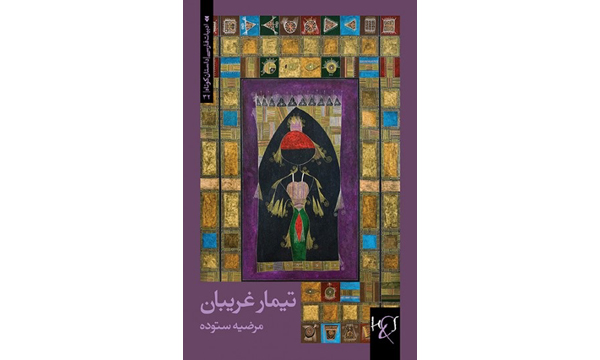
- From the short story collection The Care of Strangers
- Author: Marzieh Sotoudeh
- Language: Persian
- Publisher: H&S Media, 2013
Marziyeh Sotoudeh (b. 1957) is an Iranian-Canadian writer who has published a collection of short stories in Persian, entitled “The Care of Strangers” [تیمار غریبان, published by H&S, London: 2013]. In these stories, she portrays lives of Iranian immigrants in Canada. Her stories can be considered as quintessential examples of migrant literature. She is also a translator and has translated a collection of short stories from the world’s famous writers into Persian. She won Hedayat’s Literary Award for her short story “Top Top Khamir” in 2004.
The climax of “Top Top Khamir” is at the very beginning. In the opening paragraph, the narrator tells the reader that she inherited one third of Mr. Miller’s property, but the dead man’s sons had her convicted and deprived her of what she was supposed to inherit. Then she provides the details of the events which took place before her conviction.
She used to take care of a wealthy old man named Mr. Miller who was in the last days of his life. Little by little a friendly relationship grew between them and the crippled old man enjoyed her company. She created an enjoyable Iranian atmosphere for the old man and he became fond of her. Two or three days before his demise, Mr. Miller had his will modified and the narrator was supposed to inherit one third of his wealth. But at the trial, the lawyer hired by the Millers convincingly argued she had taken advantage of the old man’s poor health and he had not been sane and in his right mind at the end of his life.
The circular plot of the story is fragmented and full of flashbacks. The fragmented plot suits the narrator’s disturbed mind. Throughout the story, she juxtaposes her past life in Iran as a young girl with her life in Canada as a middle-aged woman. First of all, this sort of juxtaposition is evident in the title of the story. “Top Top Khamir” is a Persian nursery rhyme which the narrator learned from her grandmother. She used to sing this rhyme whenever she gave the narrator a massage. Reciting the rhyme to Mr. Miller, the narrator also gave Mr. Miller the same massage just as her grandmother did. The second juxtaposition is between the narrator’s first kiss in Iran and her last kiss in Canada. At the age of 14, when she lived in Iran, she attended a party alone and danced with a handsome boy. The boy took her to a lonely corner, hugged her, and kissed her. The taste of the first kiss is unforgettable for her especially because she never meets that boy again. In Canada, the narrator reincarnates her first love in the image of the dying old man. When Mr. Miller is about to die, he hugs her and kisses her. A kiss which is reminiscent of the first kiss of her life.
The issue of immigration is raised explicitly in the story. Apparently the narrator believes nobody is originally Canadian and even Anglo-Saxons immigrated to Canada. But Mr. Miller does not like to admit this fact and insists all his ancestors were Canadian and they didn’t immigrate to Canada. He believes that Canada used to be a better place to live in before the arrival of too many immigrants, though some of them are hardworking.
Cross-cultural problems also exist and the narrator cannot make herself fully understood to her lawyer and at times she cannot find appropriate equivalents for the Persian words she has in mind. She thinks her English is good enough, but when someone embarrasses her, she can’t come up with the right words, and her voice trembles. Her lawyer advises her to say nothing and remain silent during her trial. Even at times she cannot get across what she has in mind to Mr. Miller. There is a pictorial Persian carpet hanging on the wall of Mr. Miller’s living room. It portrays a Persian romance, but seemingly Mr. Miller does not know the story. Several times when Mr. Miller feels depressed and is not in the right mood to show off his achievements and has a tendency to listen to the narrator submissively, she decides to tell him the story, but she cannot proceed because she gets tongue-tied.
The writer has adopted the first-person point of view and to some extent the story looks like a confession. The secrets which the narrator sincerely unfolds might make the reader ruminate on the legal proceedings and question the pronounced sentence. Yet the story is not simply an attack on injustice and the writer successfully puts forward the complexity of human relationships. The details contribute to the overall meaning of the story and nothing is irrelevant. The descriptions have led to appropriate characterization and all the characters seem life-like.


Leave a Reply